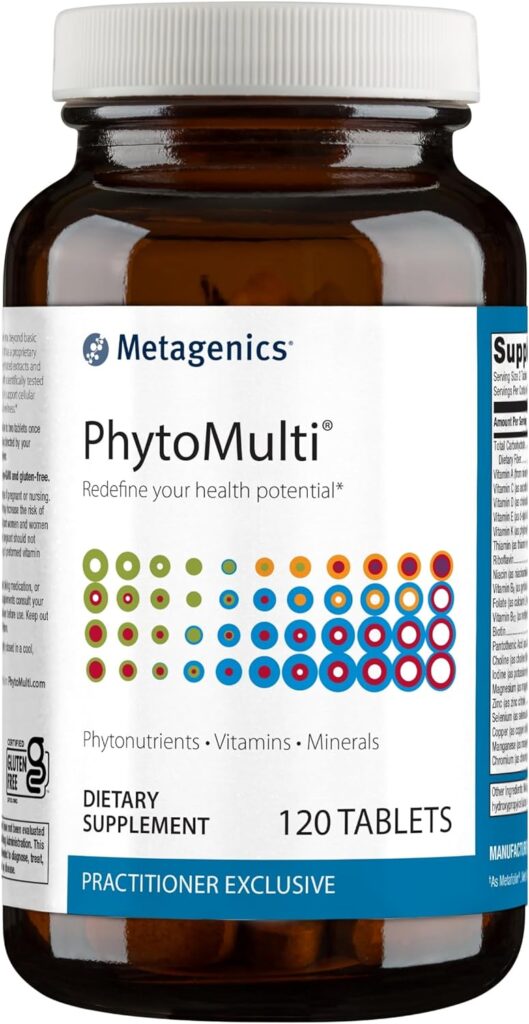“Voices Under Pressure is a participant in the Amazon Services LLC Associates Program, an affiliate advertising program designed to provide a means for sites to earn advertising fees by advertising and linking to Amazon.com. This means that if you click on affiliate links and make a purchase, we may receive a commission at no additional cost to you. We recommend products based on their relevance to the topics discussed and our belief in their quality. Our participation in Amazon’s affiliate program does not influence our content.”

Table of contents
- Staying Hydrated in the Office
- Incorporating Physical Activity into the Office Routine
- Smart Snacking for Sustained Energy
- The Impact of Mindful Eating
- Avoiding Common Dietary Pitfalls
- The Role of Supplements in an Office Diet
- Eating Out Healthily
- The Psychological Aspect of Eating
- Conclusion
- FAQs: Diet and Lifestyle for Office Workers
Today’s office workers sometimes struggle to stay healthy due to sitting all day for work. The correct food choices, along with good lifestyle habits, greatly improve their overall health. This short guide provides in-depth info about diets, food tips, and habits suited for desk workers.
Understanding the Sedentary Lifestyle
With the rise of desk-bound jobs, there’s a growing concern about the health impacts of a sedentary lifestyle. Studies, such as one published in the American Journal of Public Health, indicate a correlation between prolonged sitting and increased risks of metabolic syndrome, cardiovascular disease, and obesity. This underscores the importance of tailored dietary and lifestyle interventions for office workers.
Nutritional Foundations for Office Workers
A balanced diet is pivotal for office workers, particularly those navigating the challenges of a sedentary lifestyle. Concentrating on nutrient-dense foods is essential, as these selections offer prolonged energy and overall wellness support. Incorporating a variety of whole grains, lean proteins, healthy fats, and an abundance of fruits and vegetables ensures a well-rounded intake that can counteract the risks tied to desk-bound routines.
Such a diet not only fuels the body but also enhances mental clarity and productivity, vital for professional success. Emphasizing hydration with plenty of water and limiting processed foods and sugars is also crucial. This dietary approach fosters a strong foundation for maintaining energy levels, preventing fatigue, and supporting long-term health, which is especially important in an office environment.
Macronutrient Balance:
- Carbohydrates: Opt for complex carbs like whole grains, legumes, and vegetables.
- Proteins: Include lean protein sources like chicken, fish, tofu, and legumes.
- Fats: Focus on healthy fats from sources like avocados, nuts, and olive oil.
| Nutrient | Food Choices |
|---|---|
| Carbohydrates | ➡️ Whole grains, legumes, vegetables |
| Proteins | ➡️ Chicken, fish, tofu, legumes |
| Fats | ➡️ Avocados, nuts, olive oil |
Micronutrient Considerations:
| Nutrient Category | Essential Nutrients | Importance |
|---|---|---|
| Vitamins and Minerals | ➡️ Iron, Vitamin D, Calcium, B Vitamins, Magnesium, Zinc | Essential for maintaining energy levels, supporting immune function, and overall health |
I’ve been using Metagenics PhytoMulti Without Iron as my daily multivitamin, and I absolutely love it! It’s been a game-changer for my overall health and energy levels. If you’re looking for a supplement to support your well-being and combat aging, I highly recommend giving it a try.

Metagenics PhytoMulti Without Iron – Daily Multivitamin for Overall Health & Aging – 20+ Essential Vitamins & Minerals – with Vitamin B6, Lutein, Zeaxanthin & More – 120 Tablets
Meal Planning for the Office Environment
Meal preparation is a highly effective strategy for those with busy schedules, aiding in time management and promoting a healthy diet. By preparing meals in bulk, individuals can ensure they have nutritious options readily available, reducing the temptation to opt for less healthy, convenience foods.
Employing cooking methods such as grilling or baking not only enhances the flavor but also preserves the nutritional quality of the food. This approach is particularly beneficial for maintaining a balanced diet, as it allows for control over ingredients and portion sizes. Organizing and planning meals in advance can also alleviate the stress of daily cooking, making healthy eating more manageable and enjoyable.
Here’s a detailed meal plan:
Breakfast Ideas:
- 🠆 Spinach and feta omelet with whole grain toast
- 🠆 Berry and chia seed smoothie with almond milk
- 🠆 Steel-cut oats with sliced banana and a sprinkle of cinnamon
Mid-Morning Snacks:
- 🠆 Greek yogurt with mixed nuts
- 🠆 Apple slices with almond butter
- 🠆 Carrot sticks with hummus
Lunch Options:
- 🠆 Grilled chicken salad with a variety of greens and vinaigrette
- 🠆 Lentil and vegetable soup with a side of whole grain bread
- 🠆 Turkey and avocado wrap with whole grain tortilla
Afternoon Snacks:
- 🠆 Mixed berries and cottage cheese
- 🠆 Whole grain crackers with cheese
- 🠆 A handful of almonds and dried cranberries
Dinner Delights:
- 🠆 Baked salmon with quinoa and steamed broccoli
- 🠆 Vegetable stir-fry with tofu and brown rice
- 🠆 Lean beef chili with beans and a side of green salad
Staying Hydrated in the Office
Hydration is crucial for cognitive function and overall health. Office workers should drink at least 8 glasses of water daily. This equates to about 2 liters, supporting optimal body functions. Dehydration can lead to decreased focus and increased fatigue. Having a water bottle at your desk encourages regular sipping. Choose bottles that are easy to refill and visually appealing.
To enhance water intake, flavor it with fruits like lemon or berries. This adds a refreshing twist, encouraging more consumption. Herbal teas also count towards your hydration goal. Avoid excessive caffeine, as it can lead to dehydration. If consuming coffee, balance it with equal amounts of water.
Set reminders on your phone or computer to take hydration breaks. Regular sips can prevent the headaches often linked to dehydration. In air-conditioned offices, the air can be dry. This increases the need for regular hydration to maintain moisture levels.
Monitor your hydration through the color of your urine. Clear or light-colored urine indicates good hydration. Participating in workplace hydration challenges can be motivating. Compete with colleagues to reach daily water intake goals.
Lastly, understanding the importance of water in the body is key. It aids in digestion, circulation, and temperature regulation. Maintaining hydration is an easy yet vital aspect of workplace wellness.
Incorporating Physical Activity into the Office Routine
Physical activity complements dietary efforts, countering the negative effects of a sedentary lifestyle. Simple activities like taking the stairs, short walking breaks, or desk exercises can be integrated into the daily routine. Here my tips:
- → Utilize Your Commute: Walk, bike, or extend your walk from public transport to increase activity.
- → Stair Climbing: Choose stairs over elevators for leg strengthening and cardiovascular health.
- → Desk-Based Workouts: Integrate simple stretches, leg lifts, or seated yoga into your daily routine.
- → Walking Meetings: Opt for ‘walking meetings’ to encourage movement and enhance creativity.
- → Regular Breaks for Movement: Set reminders for short walks around the office every hour to aid circulation.
- → Standing Desks: Use standing desks to burn more calories and reduce back pain.
- → Lunchtime Walks or Gym Sessions: Utilize lunch breaks for brisk walks or gym sessions for midday energy.
- → Join or Start a Fitness Group at Work: Engage in group sports or walks after work for fun and fitness.
- → Track Your Activity: Use fitness trackers or apps to set goals and monitor daily activity.
Smart Snacking for Sustained Energy
Smart snacking is key to a balanced diet and sustained energy. Opt for nutrient-rich foods like nuts, fruits, and yogurt, which offer a mix of protein, fiber, and healthy fats. Nuts, such as almonds and walnuts, stabilize blood sugar, while fruits provide natural sugars for an immediate energy boost.
Greek yogurt, rich in protein and probiotics, supports muscle repair and gut health. Remember, portion control is crucial to avoid overeating and maintain energy levels. Staying hydrated and timing snacks throughout the day can further enhance energy maintenance.
The Impact of Mindful Eating

Mindful eating extends beyond mere consumption to a holistic appreciation of food. This approach encourages slower eating, which aids in better digestion and signals fullness more effectively, reducing the likelihood of overeating. It fosters a deeper connection with food origins and preparation methods, promoting healthier choices like whole, unprocessed foods.
By savoring each bite and acknowledging the flavors and textures, one can experience a more gratifying and less calorie-dense meal. Additionally, mindful eating helps in breaking the cycle of emotional eating by distinguishing between true hunger and other triggers.
Avoiding Common Dietary Pitfalls
Common dietary pitfalls for office workers include excessive caffeine, fast food, and high-sugar snacks. Awareness and planning are essential to avoid these traps.
The Role of Supplements in an Office Diet
Avoiding common dietary pitfalls is essential for office workers, who often face challenges like excessive caffeine intake, reliance on fast food, and high-sugar snacks. To combat these issues, awareness and proactive planning play pivotal roles. Reducing caffeine consumption can prevent energy crashes and improve hydration.
Opting for home-cooked meals over fast food ensures a healthier, balanced diet, controlling for excessive calories and unhealthy fats. Replacing high-sugar snacks with healthier alternatives like fruits, nuts, or yogurt helps maintain stable energy levels and supports overall well-being.
Eating Out Healthily
When dining out, it’s important to stick to your diet goals by choosing healthier options. Opt for dishes like fresh salads, grilled proteins, and steamed vegetables, which offer essential nutrients without excessive calories. Avoiding fried foods, heavy sauces, and large portions helps maintain a balanced diet.
Asking for dressings or sauces on the side, selecting whole grains, and prioritizing lean protein sources can further align your restaurant choices with your dietary objectives.
The Psychological Aspect of Eating
The psychological aspect of eating plays a significant role in maintaining a healthy diet, a crucial point for SEO-optimized content focusing on “diet”. Stress and boredom are common triggers for unhealthy eating habits, often leading to overindulgence in high-calorie, low-nutrient foods. Recognizing the signs of emotional eating is the first step towards developing healthier responses to these emotional states.
Developing strategies to cope with stress and boredom is vital. Instead of turning to food, engaging in activities like exercise, which not only diverts attention but also releases endorphins, can be a healthier alternative. Hobbies such as painting, gardening, or reading can also provide a therapeutic outlet, reducing the likelihood of stress eating.
Mindfulness practices, such as meditation and deep breathing exercises, can improve emotional regulation and awareness, aiding in identifying true hunger cues versus emotional hunger. Keeping a food diary can also help in recognizing patterns in emotional eating and addressing them effectively.
Moreover, establishing a routine with balanced, scheduled meals can prevent impulsive eating. This includes having nutritious snacks readily available, which helps in avoiding unhealthy choices when hunger strikes unexpectedly.
In conclusion, addressing the psychological aspect of eating is crucial for a balanced diet. By recognizing emotional triggers and finding healthier ways to cope with them, individuals can significantly improve their dietary habits.
Conclusion
A balanced diet, hydration, mindful eating, and physical activity are key to combating the challenges of a sedentary office lifestyle. By making informed choices and planning, office workers can significantly improve their health and well-being.
FAQs: Diet and Lifestyle for Office Workers
How can I manage healthy eating with a busy office schedule?
Meal prepping is key. Dedicate time on weekends to prepare and portion meals and snacks for the week. Choose simple, healthy recipes that can be easily stored and reheated.
What are some quick and healthy snack options for the office?
Opt for snacks that combine proteins and healthy fats for sustained energy. Examples include Greek yogurt with berries, apple slices with peanut butter, or a small handful of mixed nuts.
How much water should I drink during a workday?
Aim for at least 8 glasses (about 2 liters) of water per day. However, individual needs may vary, especially if you work in a hot environment or exercise frequently.
Are caffeine and energy drinks safe for boosting energy in the office?
While moderate caffeine intake can be part of a healthy diet, it’s important to not over-rely on it. Avoid energy drinks high in sugar and caffeine, as they can lead to energy crashes and disrupt sleep patterns.
How can I incorporate physical activity into my office routine?
Try simple activities like using the stairs instead of the elevator, taking short walking breaks, or performing desk exercises. Even small amounts of physical activity can have significant health benefits.
Is it okay to eat out regularly if I have a busy job?
While eating out is convenient, it often leads to less healthy food choices. Try to limit eating out and when you do, choose healthier options like salads, grilled meats, and vegetables.
What should I do if I often feel hungry at work?
Feeling hungry can be a sign of dehydration or not eating enough protein and fiber-rich foods. Ensure you’re drinking enough water and include protein and fiber in your meals to feel fuller longer.
Can I lose weight while working an office job?
Yes, weight loss is about creating a calorie deficit, which can be achieved through a combination of diet and physical activity, regardless of your job nature.
How can I avoid the temptation of unhealthy snacks at work?
Bring your own healthy snacks to work, and if possible, avoid keeping unhealthy snacks in your desk. Also, drinking water or tea can help curb the urge to snack.
Are there any specific diet plans recommended for office workers?
There isn’t a one-size-fits-all diet plan, but focusing on a balanced diet rich in vegetables, fruits, lean proteins, whole grains, and healthy fats is beneficial. It’s also important to tailor your diet to your specific health needs and goals.

